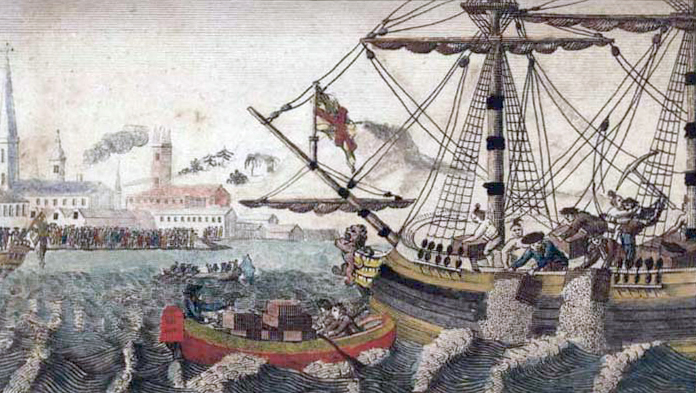| << Chapter < Page | Chapter >> Page > |
Even before there were modern nation-states, political conflicts arose among competing societies or factions of people. Vikings attacked continental European tribes in search of loot, and, later, European explorers landed on foreign shores to claim the resources of indigenous groups. Conflicts also arose among competing groups within individual sovereignties, as evidenced by the bloody French Revolution. Nearly all conflicts in the past and present, however, are spurred by basic desires: the drive to protect or gain territory and wealth, and the need to preserve liberty and autonomy.
According to sociologist and philosopher Karl Marx, such conflicts are necessary, although ugly, steps toward a more egalitarian society. Marx saw a historical pattern in which revolutionaries toppled elite power structures, after which wealth and authority became more evenly dispersed among the population, and the overall social order advanced. In this pattern of change through conflict, people tend to gain greater personal freedom and economic stability (1848).
Modern-day conflicts are still driven by the desire to gain or protect power and wealth, whether in the form of land and resources or in the form of liberty and autonomy. Internally, groups within the U.S. struggle within the system, by trying to achieve the outcomes they prefer. Political differences over budget issues, for example, led to the recent shutdown of the federal government, and alternative political groups, such as the Tea Party, are gaining a significant following.
The Arab Spring exemplifies oppressed groups acting collectively to change their governmental systems, seeking both greater liberty and greater economic equity. Some nations, such as Tunisia, have successfully transitioned to governmental change; others, like Egypt, have not yet reached consensus on a new government.
Unfortunately, the change process in some countries reached the point of active combat between the established government and the portion of the population seeking change, often called revolutionaries or rebels. Libya and Syria are two such countries; the multifaceted nature of the conflict, with several groups competing for their own desired ends, makes creation of a peaceful resolution more challenging.
Popular uprisings of citizens seeking governmental change have occurred this year in Bosnia, Brazil, Greece, Iran, Jordan, Portugal, Spain, Turkey, Ukraine, and most recently in Hong Kong. Although much smaller in size and scope, demonstrations took place in Ferguson, Missouri in 2014, where people protested the local government’s handling of a controversial shooting by the police.
The internal situation in the Ukraine is compounded by military aggression from neighboring Russia, which forcibly annexed the Crimean Peninsula, a geographic region of Ukraine, in early 2014 and threatens further military action in that area. This is an example of conflict driven by a desire to gain wealth and power in the form of land and resources. The United States and the European Union are watching the developing crisis closely and have implemented economic sanctions against Russia.

Other sociologists study government and power by relying on the framework of symbolic interactionism, which is grounded in the works of Max Weber and George H. Mead.
Symbolic interactionism, as it pertains to government, focuses its attention on figures, emblems, or individuals that represent power and authority. Many diverse entities in larger society can be considered symbolic: trees, doves, wedding rings. Images that represent the power and authority of the United States include the White House, the eagle, and the American flag. The Seal of the President of the United States, along with the office in general, incites respect and reverence in many Americans.
Symbolic interactionists are not interested in large structures such as the government. As micro-sociologists, they are more interested in the face-to-face aspects of politics. In reality, much of politics consists of face-to-face backroom meetings and lobbyist efforts. What the public often sees is the front porch of politics that is sanitized by the media through gatekeeping.
Symbolic interactionists are most interested in the interaction between these small groups who make decisions, or in the case of some recent congressional committees, demonstrate the inability to make any decisions at all. The heart of politics is the result of interaction between individuals and small groups over periods of time. These meetings produce new meanings and perspectives that individuals use to make sure there are future interactions.
Sociologists use frameworks to gain perspective on data and observations related to the study of power and government. Functionalism suggests that societal power and structure is predicated on cooperation, interdependence, and shared goals or values. Conflict theory, rooted in Marxism, asserts that societal structures are the result of social groups competing for wealth and influence. Symbolic interactionism examines a smaller realm of sociological interest: the individual’s perception of symbols of power and their subsequent reaction to the face-to-face interactions of the political realm.
What is one criticism of functionalism?
Explain what is meant by the term power elite . Consider its original intention as coined by C. Wright Mills as well as your understanding of it.
Functionalism is a complex philosophical theory that pertains to a variety of disciplines beyond sociology. Visit the entry devoted to this intriguing topic on Stanford University’s Stanford Encyclopedia of Philosophy for a more comprehensive overview: (External Link)
Domhoff, G. William. 2011. “Who Rules America?” Sociology Department at University of California, Santa Cruz. Retrieved January 23, 2012 ( (External Link) ).
Marx, Karl. 1848. Manifesto of the Communist Party . Retrieved January 09, 2012 ( (External Link) ).

Notification Switch
Would you like to follow the 'Introduction to sociology 2e' conversation and receive update notifications?